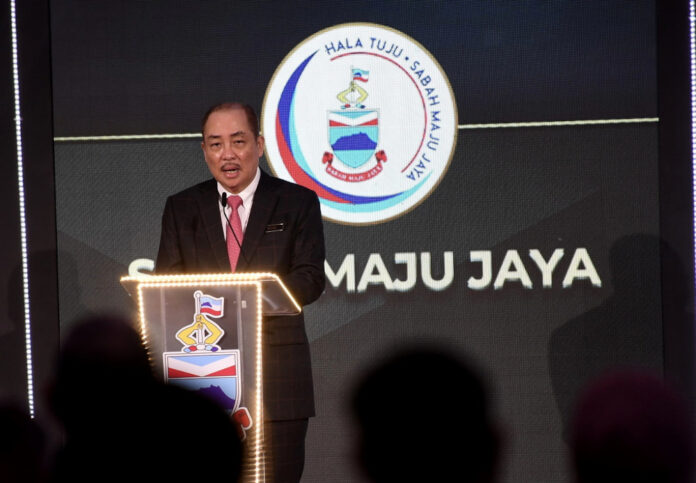Sabah Chief Minister Datuk Hajiji Noor said this commitment was also important to ensure Sabah could fully benefit from major developments expected to take place following Indonesia’s capital city relocation from Jakarta to Kalimantan. — Bernama pic
KOTA KINABALU, Dec 16 — The Sabah government is committed to ensuring the area bordering Kalimantan, Indonesia will be developed to provide benefits especially in the economic sector to Malaysia and Indonesia.
Chief Minister Datuk Hajiji Noor said this commitment was also important to ensure Sabah could fully benefit from major developments expected to take place following Indonesia’s capital city relocation from Jakarta to Kalimantan.
“The Sabah Economic Development and Investment Authority (SEDIA) will lead efforts to develop Malaysia-Indonesia border areas under the Sabah Maju Jaya Roadmap and the 12th Malaysia Plan,” he said.
He added the state government would develop a border town in Serudong-Simanggaris in Kalabakan taking into account the economic potential that the move could bring to Sabah as a result of the move.
He said this in his speech at the online launching ceremony of a book entitled Perpindahan Ibu Kota Indonesia ke Kalimantan: Implikasinya ke atas Negeri Sabah (Indonesia’s Capital City Move to Kalimantan: Implications for Sabah) hosted by Universiti Malaysia Sabah (UMS) today.
Hajiji said the positive economic and social impacts of the move would be felt with the development of the border town involving the construction of a road linking Kalabakan with Simanggaris and a customs, immigration and quarantine complex for security checks.
He said the state government viewed the move as an issue that needed immediate action at all levels due to Sabah’s unique relationship with Kalimantan.
Commenting about the book, Hajiji, who is also UMS pro-chancellor said all the ideas and information as a result of research contained in the book should be used as a guide in formulating policies in the interests of both countries.
Meanwhile, UMS vice-chancellor Profesor Datuk Taufiq Yap Yun Hin said the book highlights scholarly works examining the implications of the move by 31 Malaysian and Indonesian academics. — Bernama


